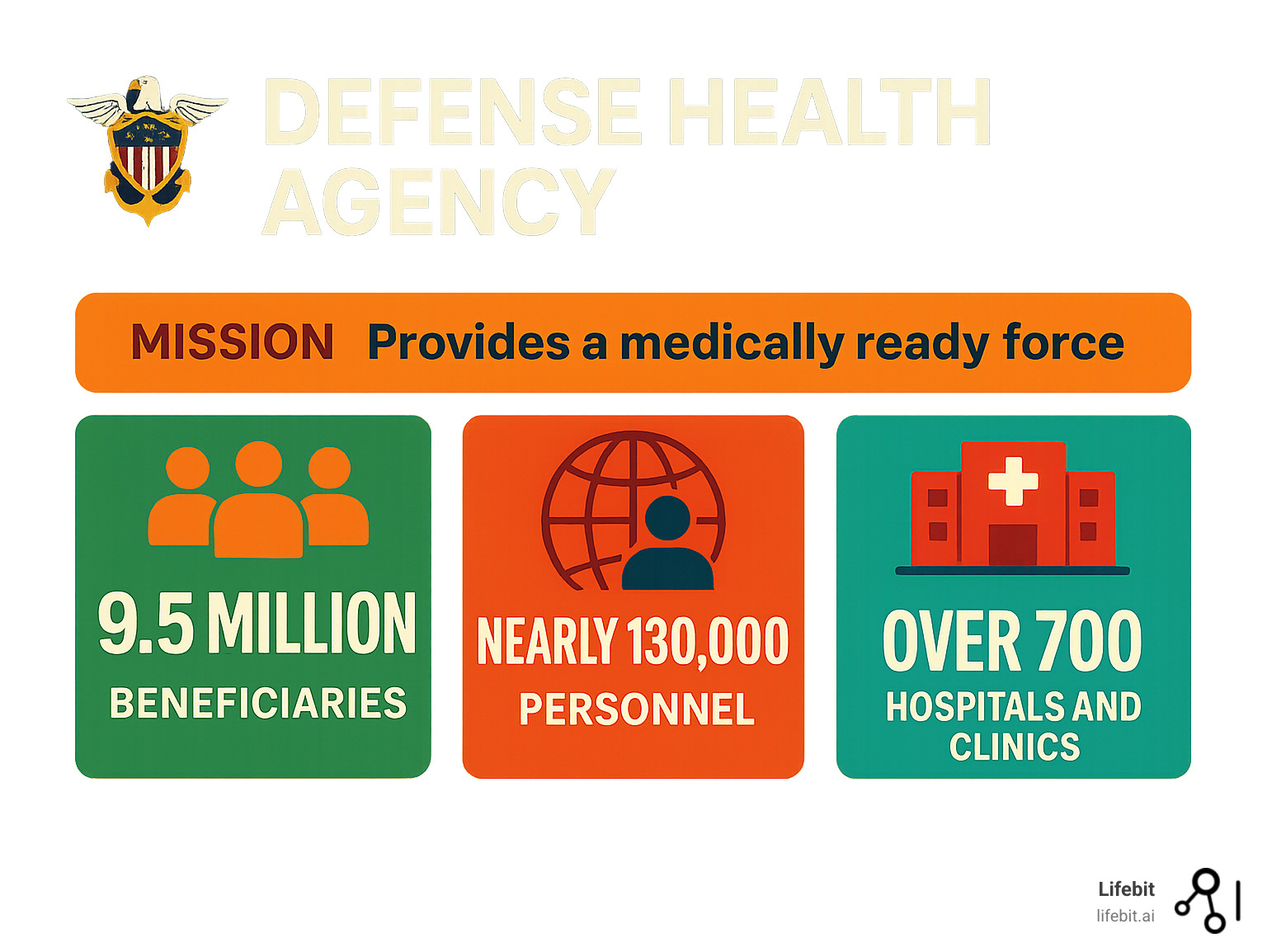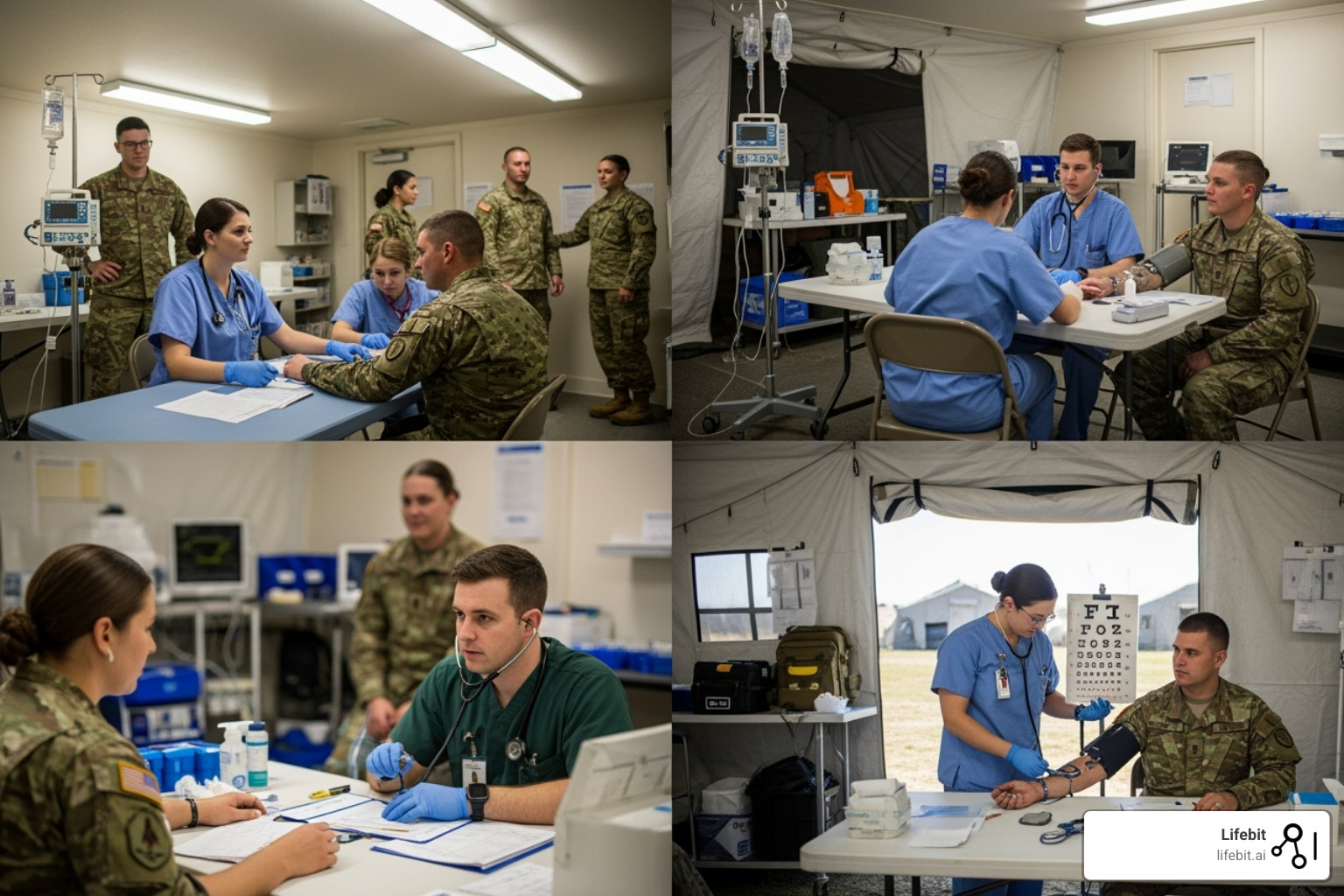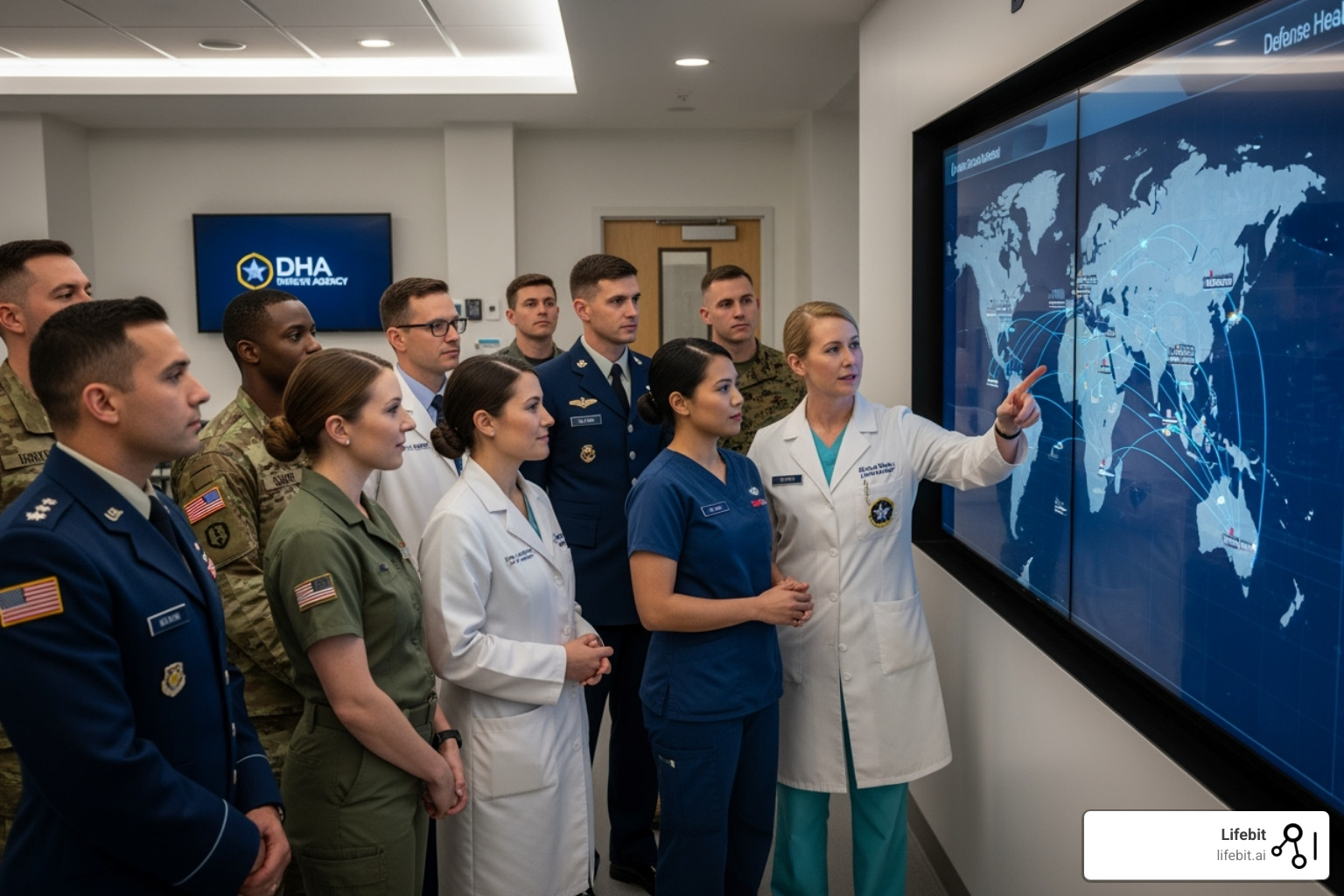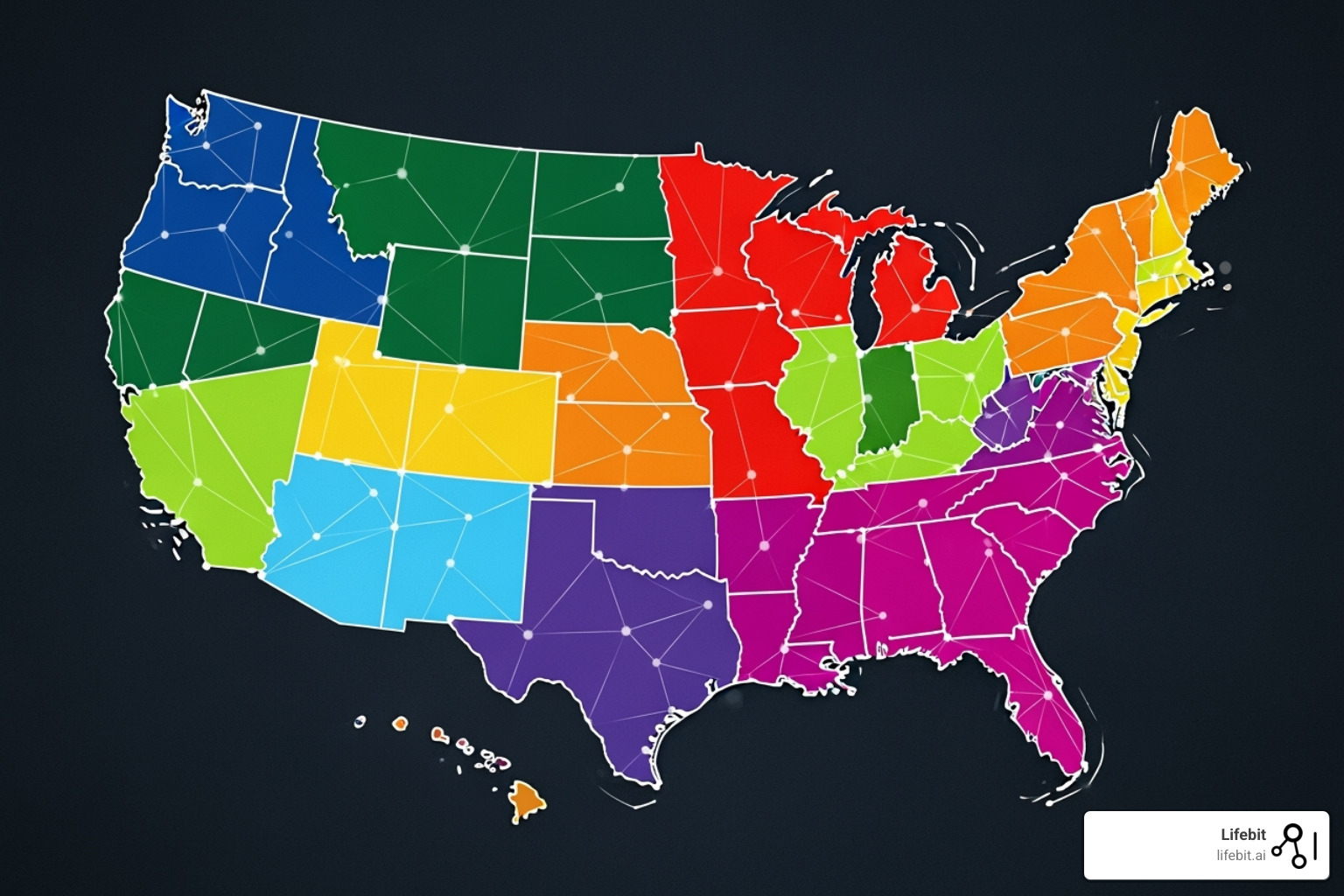Defense Health Agency: Crucial Role in 2025
What is the Defense Health Agency?
The Defense Health Agency (DHA) is a vital part of the U.S. Department of Defense. It acts as a joint, integrated combat support agency. The DHA’s core mission is to ensure that our uniformed service members are medically ready to deploy anywhere in the world. It also makes sure they receive high-quality healthcare when and where they need it.
Here’s a quick overview of what the Defense Health Agency does:
- Primary Mission: Provides a medically ready force and a ready medical force for combat operations and everyday care.
- Support: Enables the U.S. Army, U.S. Navy, and U.S. Air Force medical services.
- Reach: Delivers healthcare to 9.5 million patients worldwide through TRICARE.
- Operations: Manages over 700 hospitals and clinics globally.
- Key Areas: Leads medical research, public health initiatives, and medical education programs.
- Workforce: Comprises nearly 130,000 civilians and military personnel.
The DHA is more than just a healthcare provider. It’s a global system built to improve health and build readiness, anytime, anywhere.
As the CEO and Co-founder of Lifebit, I specialize in enabling secure, data-driven insights for complex healthcare systems, much like the extensive data landscape managed by the Defense Health Agency. My expertise in computational biology and AI helps illuminate how advanced technology can transform military medicine and global health.

The Core Mission: Supporting a Medically Ready Force
Ever wondered what truly drives the Defense Health Agency? It all boils down to two incredibly important ideas: making sure our forces are medically ready and that our medical teams are ready to serve. It’s more than just words; it’s the very foundation of keeping our nation safe, ensuring every service member is prepared for anything, anywhere. The DHA acts as a united, integrated support agency for combat, working hand-in-hand with the medical teams of the U.S. Army, U.S. Navy, and U.S. Air Force. This means they ensure seamless, high-quality care across all branches.
Our mission is crystal clear: to make health better and build readiness. We aim to make extraordinary healthcare experiences feel ordinary and exceptional outcomes a regular occurrence. This strong vision guides every single thing the Defense Health Agency does, from a simple clinic visit to managing a large-scale disaster response. As U.S. Army Lt. Gen. Telita Crosland, the DHA’s Director, recently put it, the Military Health System is always growing and adapting. She highlighted how they’re “changing how we organize to counter threats that surround us, how we deliver care on the battlefield or at home, and how we leverage the tools and technologies of this digital age to better service our patients.” It’s this forward-thinking spirit that keeps our fighting force strong and healthy.

The Defense Health Agency is a crucial piece of the larger Military Health System. Want to dive deeper into its foundational role? You can learn more by visiting The Military Health System.
The Dual Mandate of the Defense Health Agency
The Defense Health Agency truly stands out because of its unique dual mandate, which is different from most other healthcare groups.
First up is the “medically ready force.” This means keeping our amazing uniformed service members healthy and fit for whatever comes their way. Picture it as a huge, worldwide wellness program! It covers everything: routine check-ups, important immunizations, mental health support, and even physical therapy. The big goal? To make sure every single soldier, sailor, airman, and marine is physically and mentally ready to go, perform their duties, and serve effectively, no matter where they are or when duty calls.
Then there’s the “ready medical force.” This refers to the medical professionals themselves, plus all their equipment and facilities. It means having highly skilled doctors, nurses, medics, and support staff who are prepared to give care in any setting. This could be a top-notch military hospital, a field clinic in a far-off place, or even aboard a naval ship. This also includes making sure deployable medical teams are fully equipped and trained for both day-to-day operations and the tough demands of wartime support, including crucial combat casualty care. By bringing together clinical care and business operations across the Military Health System (MHS), the DHA ensures healthcare is delivered in an integrated and cost-effective way, making sure our medical teams are just as prepared as the forces they support.
How the DHA Supports Each Military Branch
Before the Defense Health Agency came into being, each military branch largely ran its own healthcare system. While they certainly did good work, this often led to things being done twice or differently across the services. The DHA was created to smooth out these operations, bringing a united approach to military healthcare for everyone.
How does the Defense Health Agency make sure everyone gets top-notch care? By bringing things together and making policies the same across the board. This means whether you’re in the Army, Navy, or Air Force, you get the same great, consistent healthcare. We’re talking about everything from unified electronic health records (more on those later!) to shared medical procedures and even how supplies get delivered. This common approach doesn’t just make care better; it also makes everything run more smoothly and uses resources wisely. It’s all about resource optimization and improved efficiency.
This way of working also encourages tri-service leadership. This is where high-ranking general and flag officers hold key positions within the DHA, often with roles that connect the agency with the individual military branches. This setup strengthens the ties between headquarters and the teams on the ground, helping them respond faster to requests for support. It truly creates a more agile and cohesive healthcare system for our entire joint force. In short, it’s all about working smarter, together, to deliver the absolute best care to those who serve us all.
A Global Health System in Action: Key Operations
The Defense Health Agency‘s reach extends far beyond just scheduling doctor’s appointments. It manages a truly immense, global health system. Think of it as a worldwide network of care, all working together to support our military personnel and their families, no matter where they are. This incredible system covers everything from everyday healthcare to groundbreaking medical research, vital public health programs, and even training the next generation of military medical experts. As the DHA itself puts it, it’s truly “More Than Healthcare Delivery.”

Our team at Lifebit understands the challenges of managing such a vast and complex health system. We specialize in analyzing huge amounts of health data securely. Our platform, with its ability to ensure health data interoperability and use advanced AI/ML tools, is built for exactly this kind of large-scale, diverse data. It helps organizations like the Defense Health Agency get real-time insights and make smart decisions, even with teams spread all over the world.
The Role of the Defense Health Agency in Healthcare Delivery
At its core, the Defense Health Agency is all about delivering top-notch healthcare. The main way it does this is through TRICARE, the healthcare program designed for uniformed service members, retirees, and their families. Through TRICARE, the DHA provides health care to an amazing 9.5 million patients across the globe! This is a huge job, requiring careful coordination across more than 700 hospitals and clinics worldwide.
A true game-changer in this system is MHS GENESIS. This is the Military Health System’s new electronic health record. Imagine having one complete medical and dental record for every service member and their family, all in one place. That’s MHS GENESIS! It means that whether someone is stationed stateside or overseas, their medical history is always available. This helps ensure smooth, continuous care and makes patient care even safer. With MHS GENESIS, you can access records, book appointments, refill prescriptions, and even chat with your healthcare team 24/7. The U.S. rollout finished in 2023, and overseas deployment began that same year – a truly massive step forward in managing global health data.
We know how important it is for health data to flow easily between different systems. The Defense Health Agency‘s push for MHS GENESIS shows their strong commitment to better data sharing across their huge network. If you need to find care, you can easily explore options at Find a Military Hospital or Clinic.
Advancing Military Medicine Through Research and Education
The Defense Health Agency doesn’t just treat illnesses; it actively works to prevent them, understand them better, and find new, innovative solutions. This dedication shines through its significant investment in both medical research and education. The DHA leads cutting-edge medical research, often partnering with top institutions like the Walter Reed Army Institute of Research and the Uniformed Services University.
Their research efforts cover a wide range of vital areas. They tackle infectious diseases, doing crucial work on vaccines, like a malaria vaccine, to protect service members in high-risk areas. They focus on combat casualty care, aiming to improve outcomes for those injured in battle, from advanced trauma care to rehabilitation. Brain health is another major priority, especially concerning Traumatic Brain Injury (TBI) and the mysterious Anomalous Health Incidents (AHI), sometimes called “Havana syndrome.” The DHA even created a special tool, DHA Form 244, to help assess AHI symptoms. Plus, they explore environmental medicine, looking at how different environmental exposures affect military operations and personnel.
Beyond research, the DHA plays a big role in medical education. They train and equip medical professionals at all levels through various academic programs within the Department of Defense. This includes supporting advanced opportunities like Graduate Medical Education, the VA/DOD Women’s Mental Health Mini-Residency, and the Immunization Essentials Course. This ensures a steady stream of highly skilled healthcare providers for our military. The growing field of AI for Precision Medicine also holds immense promise for military healthcare, helping to create more personalized and effective treatments for individuals.
Protecting the Force with Public Health Initiatives
A healthy military force is a ready military force. That’s why the Defense Health Agency takes public health so seriously. They run comprehensive health surveillance programs to keep an eye on disease trends and protect our personnel from all sorts of threats, both infectious and environmental. For example, they closely watch for public health updates, like recent measles outbreaks in the U.S., and advise service members and their families on symptoms and how to stay safe.
Their public health efforts also work to understand and fight new threats, like tick-borne diseases such as Babesiosis and Lyme disease. These are becoming more common co-infection threats. They also make sure our warfighters have safe food, whether they’re in the field or at dining facilities. This is a critical job often led by the Army Veterinary Corps.
The DHA also manages crucial programs like the Armed Services Blood Program, which ensures a constant supply of blood products for our forces around the world. And the Armed Forces Health Surveillance Center (now a Division) acts as the main health resource for the entire U.S. military. These initiatives rely heavily on strong data linking capabilities. This helps connect different pieces of information to spot patterns and guide public health actions. This proactive approach helps stop outbreaks and keeps our military community healthy, ensuring they’re always ready to serve, anytime, anywhere.
Structure and Evolution: How the Defense Health Agency is Organized
The Defense Health Agency (DHA) might feel like a seasoned veteran, but it’s actually a relatively young organization! It officially came into being on October 1, 2013. Its creation was a really big step in how the Department of Defense organizes its healthcare services. It all stemmed from important recommendations made in a 2011 report, showing a clear need for a more unified approach.
Before the DHA, military healthcare was largely managed by something called the TRICARE Management Activity. But the new agency was designed to be much more: a joint, integrated combat support agency. Think of it as bringing all the military health efforts under one roof to make things run smoother and more efficiently across the entire Military Health System. Our main office, where a lot of the magic happens, is located in Falls Church, Virginia.
The Defense Health Agency is led by some truly dedicated individuals. Currently, LTG Telita Crosland serves as our Director, with Dr. Michael P. Malanoski as the Deputy Director. Together, they guide a massive global workforce of almost 140,000 civilians and military personnel. Imagine managing a team that big! For an agency of this scale, capabilities like federated data governance are absolutely essential. They help ensure that data is accessed securely and compliantly across its vast, distributed network, making sure we stay on top of all our information needs.

From Service-Led Markets to Integrated Networks
A really significant change in how the Defense Health Agency operates recently happened: we moved from an older “market-based” healthcare model to a system of integrated Defense Health Networks. This big shift officially launched in October 2023. Instead of 20 separate markets, the DHA established nine new, streamlined Defense Health Networks.
This strategic move is all about making operations even smoother, connecting our headquarters better with teams in the field, and speeding up how quickly we can respond to support requests. Each Defense Health Network brings together military medical and dental facilities in a specific geographic region. They work as a coordinated system to improve how health services are delivered and ensure continuous care. This new structure also standardizes leadership, with general and flag officers often holding dual roles within the DHA and the military departments. As DHA Deputy Director Dr. Michael Malanoski wisely put it, this approach “standardizes leadership to improve health care delivery around the globe.” It empowers local decision-making, making the entire system more flexible and responsive to the needs of service members and their families, no matter where they are in the world. It’s a clear sign of our commitment to always getting better and providing excellent care!
Key Collaborations with Government Partners
The Defense Health Agency doesn’t work alone. Its vital mission is deeply connected with other government agencies and military branches, creating a strong network of cooperation. A perfect example is our close partnership with the Department of Veterans Affairs (VA). While the DHA takes care of active-duty personnel and their families, and the VA focuses on veterans, their missions often overlap. This collaboration leads to fantastic joint initiatives, like the VA/DOD Women’s Mental Health Mini-Residency, which helps mental health providers offer specialized care to both service members and veterans. If you’re curious to learn more about veterans’ benefits and healthcare, you can visit the VA’s website directly.
Our inter-agency cooperation also extends to other important government entities. This means we might work with the Centers for Disease Control and Prevention (CDC) on public health surveillance, or team up with other defense agencies on developing new technologies. Beyond government, the DHA also forms crucial public-private partnerships. These allow us to tap into outside expertise and innovation, especially in areas like medical research and technology. These collaborations are super important for improving the quality of care, expanding our research capabilities, and ensuring that our service members have access to the very best healthcare resources. They also highlight just how important secure data environments (SDE) are for safely and compliantly sharing information across all these different partners.
Frequently Asked Questions about the DHA
We often get asked about the specifics of the Defense Health Agency and its role in the broader healthcare landscape. It’s a big, vital organization, and we’re always happy to shine a light on what we do. Let’s tackle some of the most common questions to provide even more clarity on our mission and how we support those who serve.
What is the difference between the Defense Health Agency and the VA?
This is a fantastic and frequently asked question! It’s easy to get these two vital agencies confused, as both are dedicated to the well-being of our military community. While both the Defense Health Agency and the Department of Veterans Affairs (VA) are critical components of the U.S. government’s commitment to military healthcare, they serve distinct populations with different primary missions.
Think of it this way: the Defense Health Agency (DHA) is like the ongoing healthcare provider for our active military community. Our primary focus is on ensuring a medically ready force and a ready medical force. This means we provide healthcare to active-duty service members, their families, and military retirees through the TRICARE health plan. We support the current fighting force and their dependents globally, delivering care in military hospitals and clinics, as well as through civilian providers.
On the other hand, the Department of Veterans Affairs (VA) primarily serves veterans—individuals who have bravely completed their military service. The VA provides a wide range of benefits, including healthcare services, disability compensation, education, and housing assistance, to those who have honorably served our nation. So, while the DHA cares for those currently serving and their families, the VA steps in to continue caring for them once they’ve transitioned out of uniform.
Despite their separate missions, there are significant collaboration points between the two agencies. We work closely on initiatives like mental health support, traumatic brain injury research, and even share electronic health records (MHS GENESIS) to ensure a truly seamless transition of care for service members as they become veterans. It’s all about teamwork to support our heroes, from enlistment to retirement and beyond.
What are the career opportunities with the Defense Health Agency?
Working for the Defense Health Agency means being part of a global team dedicated to a vital mission. It’s incredibly rewarding to contribute to the health and readiness of our uniformed service members and their families. We offer a truly wide array of career opportunities for both civilian and military personnel, making us a fantastic place for healthcare professionals and many other specialists.
For our incredible healthcare professionals, the DHA offers the chance to practice top-tier medicine alongside other dedicated civilian and military colleagues. We’re always looking for talented doctors, nurses, dentists, pharmacists, therapists, and many other medical specialists. Often, these roles come with a satisfying work-life balance and excellent employment benefits, allowing you to focus on what you do best: caring for others.
But our needs extend far beyond clinical roles! Running a global healthcare system requires a diverse team. We also have critical positions for administrative staff who keep everything running smoothly, IT professionals managing MHS GENESIS and cutting-edge cybersecurity, and brilliant researchers contributing to groundbreaking medical advancements. We also need public health specialists working on disease prevention and health surveillance, as well as experts in human resources, finance, and legal to ensure the smooth functioning of the agency.
With locations worldwide, the Defense Health Agency provides unique opportunities to serve those who serve, whether you’re working in the U.S. or at one of our many overseas military installations. We are always looking for dedicated individuals to join our team and contribute to improving health and building readiness, making a real difference in the lives of millions.
What is MHS GENESIS and why is it important?
MHS GENESIS is the Department of Defense’s new electronic health record (EHR) system, and it’s nothing short of a monumental leap forward for military healthcare. Imagine having all your medical information in one place, accessible by your care team no matter where you are in the world. That’s exactly what MHS GENESIS is: a single, unified EHR for all service members, veterans, and their families. So, whether you’re an active-duty soldier stationed in Germany, a Navy spouse in Japan, or a retiree in Florida, your medical and dental records are housed in one comprehensive, secure system.
Why is this so incredibly important? It transforms how healthcare is delivered and received:
- Patient safety soars. With all medical information readily available, healthcare providers have a complete picture of a patient’s health history. This significantly reduces the risk of errors and dramatically improves the quality of care.
- Continuity of care is seamless. As service members move between duty stations, deploy overseas, or transition from active duty to veteran status, their health records move with them. This ensures uninterrupted care, no matter where life takes them.
- Data access is a breeze. Patients and providers alike have 24/7 access to medical and dental records. You can easily book appointments, refill prescriptions, and securely message your healthcare teams, putting you in control of your health journey.
- Efficiency gets a major boost. By streamlining administrative processes, MHS GENESIS allows our dedicated healthcare professionals to focus more on what they do best: providing excellent patient care, rather than getting bogged down in paperwork.
The full stateside rollout of MHS GENESIS was completed in 2023, and overseas deployment began the same year. It represents a significant investment in modernizing military healthcare, making it more efficient, safer, and truly more patient-centered for everyone involved. You can access your information and connect with your care team through the MHS GENESIS Patient Portal.
Conclusion
As we wrap up our journey through the incredible work of the Defense Health Agency, it’s clear they stand as a powerful symbol of our nation’s deep commitment to those who serve. From ensuring our troops are healthy enough to face any challenge, to delivering top-notch care wherever they are, the DHA is truly a cornerstone of military readiness and well-being.
We’ve seen how the DHA seamlessly supports every military branch, creating a unified healthcare experience. We’ve explored the massive reach of TRICARE and the game-changing power of MHS GENESIS, which brings all medical records together in one place. And let’s not forget their tireless efforts in groundbreaking medical research and vital public health initiatives, always looking ahead to protect our forces.
In today’s world, using the power of data is key to even better healthcare. That’s where organizations like ours, Lifebit, come in. We’re incredibly proud to contribute to this data-driven future with our advanced federated AI platform. Imagine secure, real-time access to vast amounts of health data, all while keeping it protected. This kind of data-driven healthcare, powered by solutions like a Federated Trusted Research Environment, is exactly what helps complex systems like the Military Health System make smarter decisions, faster. It’s about turning information into insights that truly improve lives.
The Defense Health Agency is always evolving, always innovating. Their journey is a testament to continuous improvement, leveraging cutting-edge tools and smart collaborations. This unwavering dedication ensures that our service members and their families receive the extraordinary care they deserve, helping them stay ready, healthy, and strong, no matter where their service takes them.

